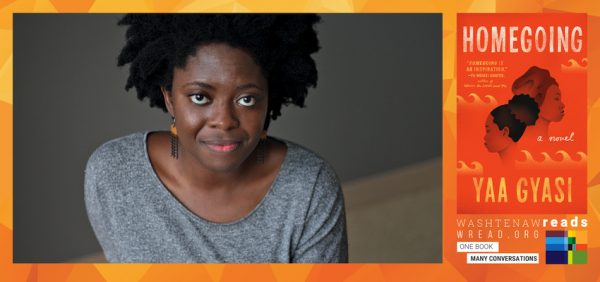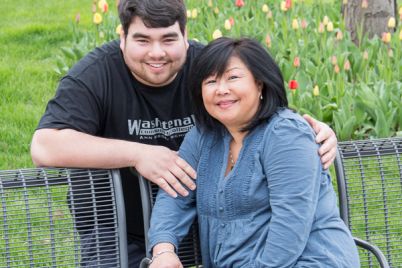Contributor
Some 15 years ago, a University of Michigan group launched community activity modeled after a program at the Seattle Public Library. The idea was to promote community discussion, and reading, by selecting a book and encouraging people throughout Ann Arbor to read and discuss it.
Today, the program—Washtenaw Reads—includes communities and public libraries across Washtenaw County. Each year’s book is selected by a group of volunteers, who consider suggestions made by people in the community. The books are often timely and always meant to provoke thought and encourage dialogue.
This year’s selection is “Homegoing” by Yaa Gyasi. The winner of the American Book Award and the Audie Award for Literary Fiction and Classics, “Homegoing” addresses many problems that are relevant today.
The book spans seven generations and two countries: Ghana and America. It tells the stories and struggles of black individuals faced with the struggles of achieving freedom. Gyasi doesn’t shy away from telling the brutally honest truth of the injustices they faced, and the false pretense of freedom created post-slavery.
For the past few weeks, libraries across Washtenaw County organized book talks to allow readers to have conversations about the issues and themes. In addition, Gyasi was invited to the University of Michigan for a lecture in February.
Gyasi paints a picture of the effect of slavery over centuries, said Elizabeth Pearce, a participant in a Washtenaw Reads book discussion at the Ann Arbor District Library. The book also addresses sexuality, rape, mental health, drugs, family and the concept of home.
These themes and concepts prompted the people of Washtenaw County to think about, acknowledge and discuss the various struggles and flaws they think our country and world still have. This made for some insightful and honest discussion.
During the book discussion at the downtown library on, another participant, Margaret Leslie, noted that “we still haven’t overcome.”
The readers who took part in that discussion explored the difference between legal freedom and the everlasting effects of slavery. They talked about and differentiated between black individuals being free by law and gaining political headway, yet, still not achieving economic headway.
The group took moments to reflect on their respective privileges, and a teacher at Ann Arbor Public Schools, J.L. Fleming, expressed realization of her privilege and a desire to ensure her kids and students were aware of such things.
On Feb. 6, Gyasi was in Ann Arbor to deliver the Jill S. Harris Memorial Lecture for UM’s Institute for the Humanities.
Held at Rackham Auditorium, the lecture took the form of a conversation between the author and two UM professors, Gaurav Desai and Aida Levy-Hussen. The talk centered around the concepts of freedom, home, the afterlife of slavery.
Gyasi’s talk was filled with powerful ideas and words. However, the ending statement resonated with many people, as seen in their reactions and the multiple tweets quoting her. In response to the question, “Has writing this book changed your view on home.” Gyasi responded “yes,” and “Home doesn’t have to be a single solitary place. It can be an amalgamation of all these different places. You can claim these homes as your own.” She emphasized how home is internal rather than external. This struck a chord with the audience, and tied back to the concept that Gyasi, and characters in her book struggle with this: home.
Gyasi revealed that the title “Homegoing” is rooted in the African slave funeral tradition in which the soul would return to the place from which it was stolen.
The community conversation surrounding “Homecoming” spurred questions, ideas and opinions and accomplished its goals in inspiring readership. As a result, the community came together with a greater understanding of topics addressed in this book.


